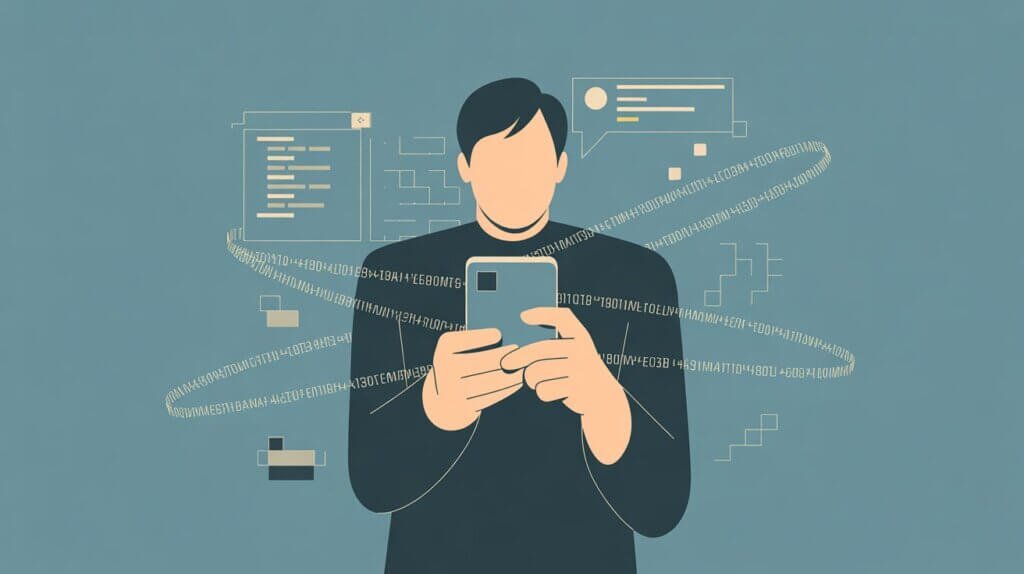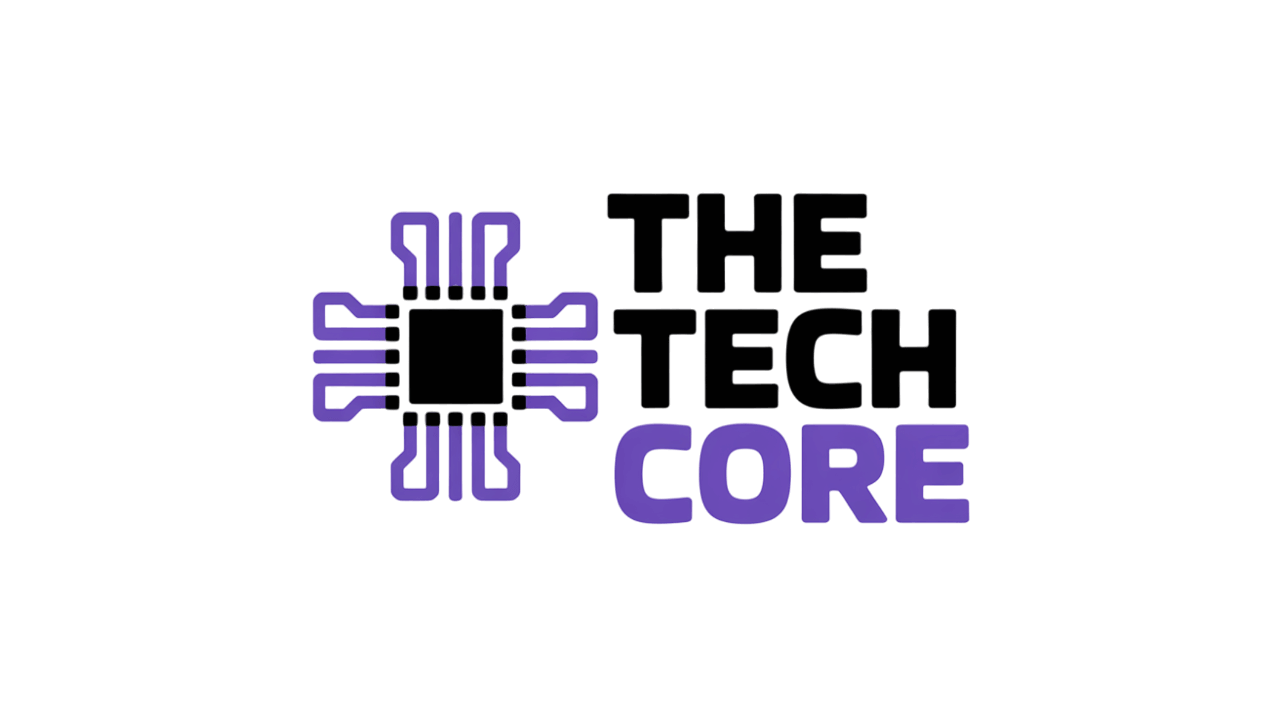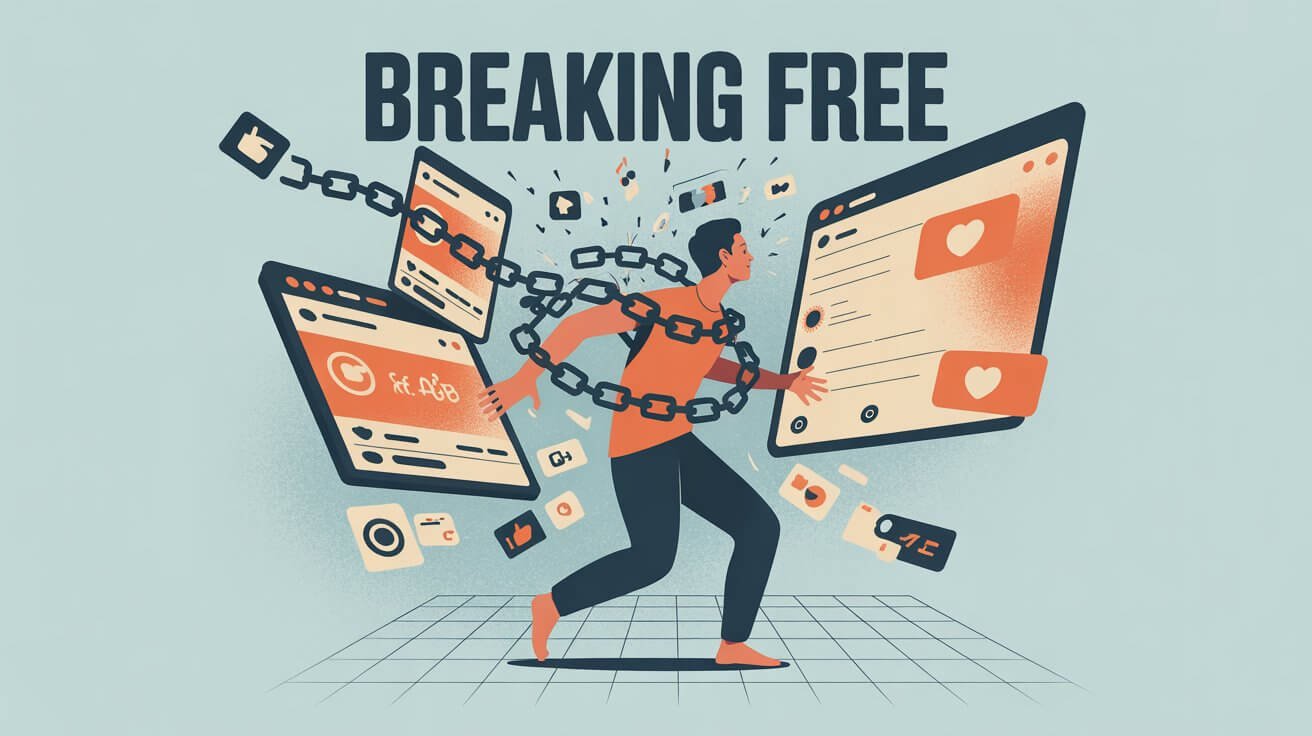Let’s be honest—most of us reach for our phones without thinking. We swipe, scroll, double-tap, repeat. It feels harmless. Even normal. But what if the apps we love aren’t just tools… but traps?
In this post, I want to talk like a friend. Not to guilt you out of using Instagram or TikTok—but to explore something deeper: how social media addiction happens, how algorithmic manipulation plays a role, and what it all means for our mental health and digital wellness.
We’ll look at how platforms are built to keep us coming back, how that impacts our mental health, and what we can do about it. Because yep—social media addiction is real. And the algorithms behind it are smarter (and sneakier) than we think.
🤖 How Algorithms Shape Our Habits (and Why That’s a Problem)
Let’s start with the basics: What’s an algorithm on social media?
At its core, it’s a formula—code that decides what you see, when you see it, and how long you stay. Sounds neutral, right? But here’s the twist: these algorithms aren’t just engineered to serve content. They’re engineered to serve your attention to advertisers.
Take TikTok’s “For You” page. Or Instagram’s Reels. These platforms learn what makes you pause, click, or react. The more time you spend engaging, the more valuable you become. So they optimize for that.
This becomes dangerous when:
- You start losing track of time regularly
- You feel anxious or down after scrolling
- You can’t resist checking your phone, even when you don’t want to
Facebook’s own research (leaked in 2021) showed that Instagram negatively impacted body image in teenage girls—and they knew it. But they kept pushing engagement because… engagement means dollars.
The result? Algorithmic manipulation takes choices you think you’re making—and rewires them into compulsions.
🧠 The Psychology of a Scroll: How It Hooks Us
It’s not a coincidence that social media feels addictive. The platforms are designed to activate core psychological principles that shape our behavior. Here are a few:
1. Variable rewards
You don’t know when the next exciting post, like, or comment will pop up—so your brain keeps checking. This mimics the same loop as a slot machine.
2. Dopamine hits
Every notification boosts your dopamine (the “feel-good” chemical). Over time, your brain starts craving more, just like it would with sugar or drugs.
3. Fear of missing out (FOMO)
Seeing stories or posts from friends makes you feel like you’re missing something if you’re not online.
These aren’t bugs. They’re features. And when overused, they can lead to real emotional and mental fallout: anxiety, comparison, burnout, and low self-esteem.
A 2023 study by Pew Research found that 32% of teen girls said Instagram made them feel worse about their bodies. That’s not a fringe issue—it’s a warning sign.
📉 What Social Media Addiction Does to Our Mental Health

When you’re constantly plugged in, it’s easy to forget what calm even feels like. Social media addiction can affect your:
- Sleep: Blue light and infinite scroll make it harder to sleep well
- Focus: Constant notifications fragment your attention span
- Mood: Comparison and negative news can increase anxiety or depression
- Self-worth: You start measuring yourself by likes or comments
And this isn’t just anecdotal. Researchers from the University of Pennsylvania found that limiting social media use to 30 minutes a day significantly reduced depression and loneliness in college students.
It’s a growing concern across all age groups. Even adults aren’t immune—more than half of U.S. adults say they’ve taken a break from social media for mental health reasons.
🔧 Practical Ways to Reclaim Control from the Algorithms
Okay—so we’ve talked about the problem. Now let’s talk about what we can do. Because despite how powerful these apps are, we’re not powerless.
Here are a few ways to resist algorithmic manipulation and reduce social media addiction:
1. Turn off notifications
Disable push notifications for your social apps. This reduces the urge to check constantly.
2. Set screen time limits
Use built-in tools like iOS’s Screen Time or Android’s Digital Wellbeing dashboard to track and cap your daily usage.
3. Use “grayscale” mode
Color stimulates. Try switching your phone screen to black-and-white. It makes apps less engaging and more boring—in a good way.
4. Schedule intentional usage
Set specific times of day to check social media, instead of reflexively opening an app every 10 minutes.
5. Curate your feed
Unfollow or mute accounts that make you feel anxious or inadequate. Follow people that educate, uplift, or make you laugh—no shame in editing your feed to protect your mental health.
6. Take a detox
Try going a full day—or even a weekend—without social media. Use that time to reconnect offline.
Apps like Forest or Freedom can help you stay off screens. And mindfulness apps like Headspace can rebuild your attention span and reduce anxiety.
🔭 What’s Next? The Future of Social Media and Digital Wellbeing
The good news is, awareness is rising. More people are talking openly about social media addiction and digital wellness. Some platforms are starting to respond:
- TikTok implemented watch time warnings after long scrolls
- Instagram introduced “Take a Break” features
- Apple and Google added Digital Wellbeing controls in phones
But critics argue these are band-aid solutions. They don’t address the profit-driven algorithmic core. Until that changes, most responsibility still falls on us, the users.
At the same time, there’s a growing movement toward ethical tech and humane design. Organizations like The Center for Humane Technology promote design that respects users instead of exploiting attention.
It’s a sign that change is possible—but it will take collective awareness, pressure, and tools that put human wellbeing at the center.
🧭 Final Thoughts: You’re Not Broken. The System Is.
If you’ve ever found yourself stuck in an hours-long scroll, don’t beat yourself up. You’re not lacking willpower. You’re reacting—perfectly naturally—to systems built to hijack your habits.
The first step is noticing.
From there, it’s about small actions: turning off a notification here, curating your feed there, choosing presence over pixels when you can.
Nobody’s saying to quit social media altogether. But understanding how social media addiction works, and how algorithms manipulate our behavior, gives us the power to take back control—even just a little.
And maybe that’s enough to start feeling a bit more like yourself again.
Sources & References:









Vey well explained, this is an eye opener and we have to be more careful how we use internet and how kids leverage the technology.